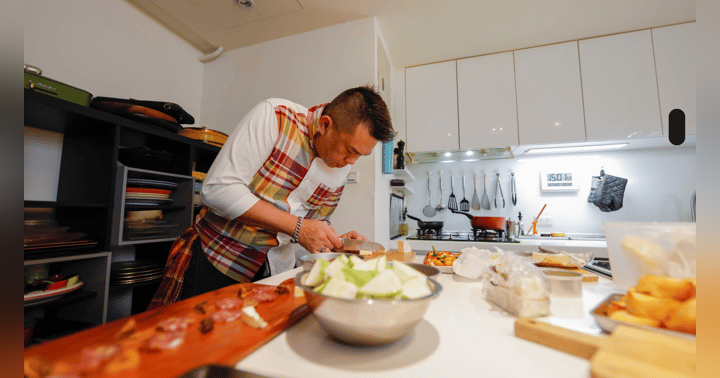Will AI destroy careers in Hospitality?

I recently had quite the heated discussion with some friends of mine about AI.
They were extremely worried that everyone would soon be out of jobs, and couldn't see my excitement about discovering this new tool.
I suspect my use of the term "Luddites" didn't help matters...
The question is - are they right to be concerned?
According to a study by the McKinsey Global Institute, about 8% of jobs in the United States no longer exist since 2000. This is due to a number of factors, including automation, globalisation, and the rise of new technologies.
The study also found that about 30% of jobs in the United States are at risk of being automated in the next 10-20 years.
Perhaps, then, I should not have been so hasty in attacking my buddies.
Is Hospitality Safe?
Hospitality is all about people though, right? So what have we got to worry about?
The Future of Hospitality: AI and the Hospitality Worker
The hospitality industry is - despite the pandemic - one of the largest and most important industries in the world. It employs millions of people around the globe and generates trillions in revenue each year.
BUT the hospitality industry is also one of the most rapidly changing industries.
New technologies are emerging all the time that are changing the way we live and work. And one of the most important technologies of all is artificial intelligence (AI).
AI is already having a major impact on the hospitality industry. It is being used to automate tasks, improve customer service, and make operations more efficient. And as AI continues to develop, it is only going to have an even greater impact on the industry.
So what does this mean for hospitality workers? Well, it means that there are both challenges and opportunities ahead.
On the one hand, AI is going to lead to some job losses. Tasks that are currently done by humans will be automated by machines.
AI is also going to create new jobs. And this is the bit the fear mongers are missing.
There will be a need for people to develop, train, and maintain AI systems. And there will also be a need for people to work with AI systems to provide customer service and other tasks.
What Can We Do?
So what can hospitality workers do to prepare for the future of AI?
Here are a few tips:
-
Stay up-to-date on the latest AI technologies. The more you know about AI, the better prepared you will be to work with it.
-
Develop your skills in data analysis and machine learning. These are the skills that will be in high demand as AI becomes more widespread.
-
Be open to change. The hospitality industry is changing rapidly, and you need to be willing to change with it.
If you are a hospitality worker, then you are at the forefront of a major technological revolution.
AI is going to change the way we work, whether you like it or not, but it is also going to create new opportunities. By staying up-to-date on the latest technologies and developing your skills, you can position yourself for success in the future of hospitality.
Here are some bullet points and summary descriptions of the impact of AI on hospitality workers:
-
Impact on jobs: AI is likely to lead to some job losses in the hospitality industry, as tasks that are currently done by humans are automated by machines. However, it is also likely to create new jobs, as there will be a need for people to develop, train, and maintain AI systems. And there will also be a need for people to work with AI systems to provide customer service and other tasks.
-
Impact on customer service: AI can improve customer service in the hospitality industry by providing a more personalised and efficient experience. For example, AI can be used to answer customer questions, recommend products and services, and make reservations.
-
Impact on operations: AI can improve the efficiency of operations in the hospitality industry by automating tasks such as inventory management, scheduling, and billing. This can lead to lower costs and improved customer satisfaction.
-
Overall impact: AI is likely to have a positive impact on the hospitality industry overall. It can lead to improved customer service, increased efficiency, and lower costs. However, it is important to manage the transition to AI carefully to avoid job losses and other negative impacts.
Here are some potential opportunities for hospitality workers in the age of AI:
-
Data analyst: Data analysts will be in high demand to help businesses collect, analyse, and interpret data from AI systems.
-
Machine learning engineer: Machine learning engineers will be needed to develop and train AI systems.
-
Customer service representative: Customer service representatives will need to be able to work with AI systems to provide a personalised and efficient experience for customers.
-
Sales representative: Sales representatives will need to be able to use AI to identify and target potential customers.
-
Marketing manager: Marketing managers will need to use AI to create and deliver targeted marketing campaigns.
These are just a few of the many potential opportunities for hospitality workers in the age of AI.
In conclusion then, my position is simple.
The flood gates have been opened, whether you embrace change or not will determine whether you sink or swim.
[This article was written by Bard.google.com and ChatGPT.ai with edits and tops and tails by the author. The image is also AI generated via Canva.com]



